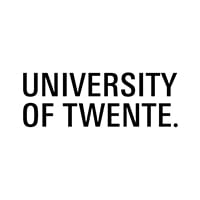PhD position on single-molecule protein nano dielectrophoresis
Position Details (PhD Program)
Job description
We are developing a platform for studying protein dielectrophoresis at the single-molecule level. Your research will be focused on using nanogap dielectrophoresis for trapping single protein molecules and building an understanding of this trapping phenomenon. Are you passionate about single-molecule biophysics and this research? The PhD will involve a lot of complex optical measurements with advanced custom-built microscopy, handling protein samples, surface chemistry and working with electric signals to trap and study the protein dielectrophoresis. These activities must be something that you are eager to master and to spend time on, please elaborate on this in the motivation letter. We have all you need to execute your ambitious research: cleanroom facilities, optical, electronic and chemical labs and most importantly lots of fun people to work with.
Competences you will develop during your PhD with us:
- Advanced optics; we will study the molecules in our traps using custom-made light scattering microscope.
- Electrodynamics; for engineering of the electric tweezers and understanding the behavior of the analyte molecules.
- Surface chemistry (basics)
- Data analysis
- Measurement automation
- Scientific writing
- Soft skills (presentation skills, time management, teamwork)
- Supervision of students and teaching skills
Your profile
- You are a very enthusiastic, positive and hardworking researcher and highly motivated about this project;
- You have, or will shortly acquire, a MSc degree in the field of Applied Physics, Electrical Engineering, Biomedical Engineering, Nanotechnology, Nanobiology or a related field;
- Previous experience in advanced optics, dielectrophoresis is highly encouraged, but not obligatory;
- You are a creative person and have excellent analytical and communication skills;
- You have good team spirit and like to work in an interdisciplinary and internationally oriented environment;
- You are proficient in both written and spoken English.
Our offer
- As a PhD candidate at UT, you will be appointed to a full-time position for four years, with a qualifier in the first year, within a very stimulating and exciting scientific environment;
- The University offers a dynamic ecosystem with enthusiastic colleagues;
- Your salary and associated conditions are in accordance with the collective labour agreement for Dutch universities (CAO-NU);
- You will receive a gross monthly salary ranging from € 3.059,- (first year) to € 3.881,- (fourth year);
- There are excellent benefits including a holiday allowance of 8% of the gross annual salary, an end-of-year bonus of 8.3%, and a solid pension scheme;
- A minimum of 232 leave hours in case of full-time employment based on a formal workweek of 38 hours. A full-time employment in practice means 40 hours a week, therefore resulting in 96 extra leave hours on an annual basis.
- Free access to sports facilities on campus
- A family-friendly institution that offers parental leave (both paid and unpaid);
- You will have a training programme as part of the Twente Graduate School where you and your supervisors will determine a plan for a suitable education and supervision;
- We encourage a high degree of responsibility and independence, while collaborating with close colleagues, researchers and other staff.
Information and application
Are you interested in this position? Please send your application via the 'Apply now' button below before January 15, 2026, and include:
- A detailed Curriculum Vitae including your publications, awards, and working experience. Your CV should demonstrate the scope of your work and education and indicate a good fit with the stated requirements for the position.
- A motivation letter, emphasising your specific(personal) interest and motivation to do a PhD on the described topic.
- An academic transcript of BSc and MSc education, including grades.
- A short description of your MSc thesis/final project.
- References (contact information) of two scientific staff members (one of whom should be the supervisor of your MSc thesis/final project) who are willing to provide a recommendation letter at our request.
A note on using LLMs to assist in writing your motivation letter. Consider this fact: these days > 90% of the motivation letters are written using LLMs and most of them will not be shortlisted due to being alike to the other motivation letters written by an LLM. You can surely use LLMs for feedback on grammar and structure of your application, but be mindful in giving it too much leeway in editing your documents, it may harm your chances of being hired.
For more information regarding this position, you are welcome to contact Sergii Pud via the following email address: [emailprotected].
The intended starting date is around April 1, 2026.
Screening is part of the selection procedure.
About the organisation
The faculty of Electrical Engineering, Mathematics and Computer Science (EEMCS) uses mathematics, electronics and computer technology to contribute to the development of Information and Communication Technology (ICT). With ICT present in almost every device and product we use nowadays, we embrace our role as contributors to a broad range of societal activities and as pioneers of tomorrow's digital society. As part of atech university that aims to shape society, individuals and connections, our faculty works together intensively with industrial partners and researchers in the Netherlands and abroad, and conducts extensive research for external commissioning parties and funders. Our research has a high profile both in the Netherlands and internationally. It has been accommodated in three multidisciplinary UT research institutes: Mesa+ Institute, TechMed Centre and Digital Society Institute.



 University of Twente
University of Twente